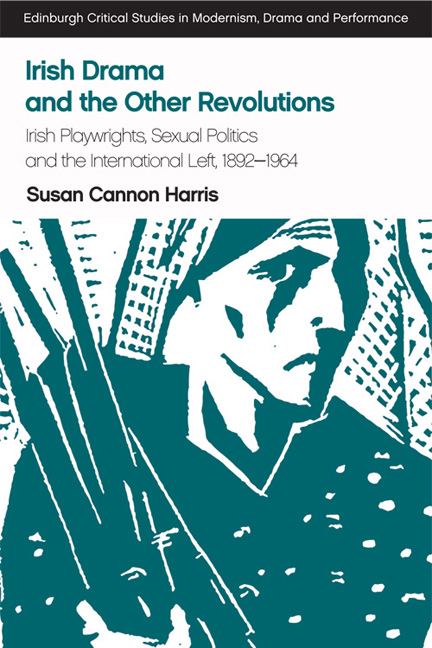 Irish Drama and the Other Revolutions
Irish Drama and the Other Revolutions Published online by Cambridge University Press: 06 January 2018
INTRODUCTION
‘Next to a war’, observed The Irish Times theatre critic on 4 November 1914, ‘it is probable that nothing holds so much that is tragic and dramatic as a strike’ (‘Abbey Theatre. A Powerful Strike Play’, 6). So soon after the Great Lockout of 1913, he could not have found many Dubliners willing to argue with him. In summer of 1913, the Irish Transport and General Workers’ Union (ITGWU), under the leadership of the Liverpool-born labour leader James Larkin, began organising employees of the Dublin United Tramways Company (Yeates, Lockout, 5). The company owner, William Martin Murphy, was the head of the Dublin Employers’ Federation and a fierce opponent of organised labour. Murphy's efforts at retaliation prompted the ITGWU to call a tramworkers’ strike, which began on 26 August (ibid., 1–15). Other Dublin employers responded by retaliating against ITGWU workers (ibid., 27). Soon the ITGWU was engaged in a battle with Dublin capitalists which lasted until February 1914 and kept tens of thousands of Dublin's poorest citizens out of work.
The Great Lockout of 1913 was more than a labour dispute. As Dublin historian Padraig Yeates puts it, the Lockout was a form of ‘street theatre’ through which Dublin's rich and poor staged a ‘public debate’ about ‘the type of society people wanted under home rule’ (Yeates, A City in Wartime, 6). It dramatised the desperation of Dublin's unskilled workers and their capacity for collective action. It dragged into the light of day the shame of Dublin's failure to provide humane housing for its poor. It offered local media a compelling protagonist (or villain, depending on the ownership of the paper) in the figure of Jim Larkin, the charismatic organiser who led the ITGWU through the Lockout. It is thus not surprising that when A. Patrick Wilson staged his Lockout play, The Slough, at the Abbey Theatre in 1914, even The Irish Times reviewer confessed himself fascinated by it.
But the Lockout was only one incident in a revolution that had been unfolding internationally since the beginning of the century. What made strikes particularly ‘tragic and dramatic’ during the first two decades of the twentieth century was the rise of a radical labour movement known as syndicalism.
To save this book to your Kindle, first ensure [email protected] is added to your Approved Personal Document E-mail List under your Personal Document Settings on the Manage Your Content and Devices page of your Amazon account. Then enter the ‘name’ part of your Kindle email address below. Find out more about saving to your Kindle.
Note you can select to save to either the @free.kindle.com or @kindle.com variations. ‘@free.kindle.com’ emails are free but can only be saved to your device when it is connected to wi-fi. ‘@kindle.com’ emails can be delivered even when you are not connected to wi-fi, but note that service fees apply.
Find out more about the Kindle Personal Document Service.
To save content items to your account, please confirm that you agree to abide by our usage policies. If this is the first time you use this feature, you will be asked to authorise Cambridge Core to connect with your account. Find out more about saving content to Dropbox.
To save content items to your account, please confirm that you agree to abide by our usage policies. If this is the first time you use this feature, you will be asked to authorise Cambridge Core to connect with your account. Find out more about saving content to Google Drive.